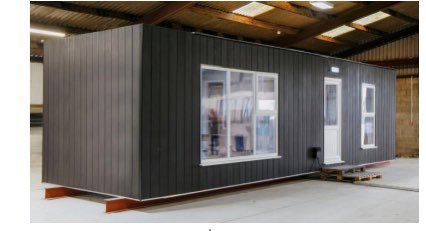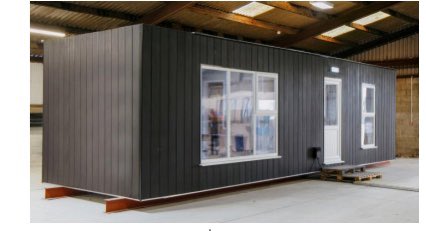
As strange as it may seem, some people who come out of prison often break the law again because they want to go straight back behind bars. That is because those who do, have little or no job prospects and nowhere else to go. With no permanent roof over their heads and no legitimate means of earning money, prison is their most secure option and, ironically, where they may feel most at home.

That is why a pioneering new project, “Prisoners Building Homes (PBH)” led bythe South West Reducing Reoffending Partnership, and actively supported by all five Conservative Police and Crime Commissioners, is a welcome development for a number of reasons.
The scheme provides prisoners with construction skills to improve their employability - getting employment upon release reduces the likelihood of reoffending by 37%. Prisoners are paid for their work enabling them to save for a deposit/rent to access the private rental market - settled accommodation reduces re-offending by up to 50%. It also provides meaningful and productive activity in prisons, which is proven to improve prisoner behaviour.
Under the leadership of professional tradespeople, prisoners preparing for their release gain valuable work skills and nationally accredited qualifications. They are also building something worthwhile – environmentally friendly modular homes, whether in a workshop within the prison, or at a ‘factory’ on the employer’s site (for low-risk prisoners based in open prisons, on day release).
Qualifications that offer the prospect of employment on the outside, and with it, abetter future, are crucial to cutting reoffending, which devastates lives. Reoffending also costs the country at least £20 billion every year, taking into account all associated social and economic costs. Our prisons are overflowing, so anything that reduces reoffending will also reduce the pressure on prisons.
But the scheme offers much more than just cutting reoffending. These eco-friendly homes are made using Modern Methods of Construction techniques which facilitate high energy efficiency (to reduce energy bills), scalability and delivery of quality, net zero-carbon homes. Relocatable homes for rent which meet national standards and have a design life of 60+ years can also be acquired by landowners lacking the cash to purchase.
For local authorities this is an amazing opportunity, as the low cost of acquiring these relocatable homes is significantly less than a hotel, bed & breakfast or other private rented stock. Councils across the country spend at least £1.6 billion a year on temporary accommodation, putting most under pressure to maximise council tax increases and some even at risk of ‘bankruptcy’. A further cost saving to local authorities is that PBH offers project support (funded by the South West Police and Crime Commissioners) and technical support (funded by the Department of Levelling Up, Housing and Communities through One Public Estate).
This initiative has the potential to provide homes for anyone requiring affordable and accessible accommodation.
The PBH Programme is a win, win, win for everyone. It reduces reoffending, gives skill-sets to prisoners and reduces crime. Homes can be delivered to suit all budgets - even those with no capital, just seeking a rental option. They are genuinely affordable and could be used to house vulnerable people (rising post-Covid), homeless people (again, increasing with the cost-of-living crisis and no fault evictions), those displaced by flooding (a growing risk), NHS key workers (unable to afford high housing rents around hospitals) and migrants.
All our councils in Gloucestershire are now having to urgently find accommodation for 100s of asylum seekers as their applications are being progressed at pace by the Home Office, driving down the application backlog. There is currently insufficient emergency accommodation to house these people and the pace of building traditional housing is obviously too slow to meet the immediate timescales needed. Leaving aside the topical but controversial issue of prioritising the long social housing queue for the most deserving applicants – which is a whole separate article – it is clear that asylum seekers certainly add to the overall volume of houses needed.
Local authorities may not own large parcels of land to site these homes but it never ceases to surprise me just how much land is within their gift and ownership -unusual sized Brownfield or Greyfield sites; old car parks no longer in use and corner plots. These homes can even fulfil a ‘meanwhile’ use, while waiting for planning permission for other purposes. The Programme will support them to find away to put homes on these underutilised sites. Church land could also be a good option and is being considered here in Gloucestershire.
Whilst the Programme was launched in the South West it is now national, supporting councils to overcome the temporary accommodation crisis whilst providing real hope to prisoners, and give them a reason to turn away from crime. This is a scheme, championed by Conservatives that reduces crime, cuts re-offending, and creates genuinely affordable housing that meets the needs of a wide range of people in need, and cuts council costs at the same time. If you like what you’ve read here, please do get in touch.